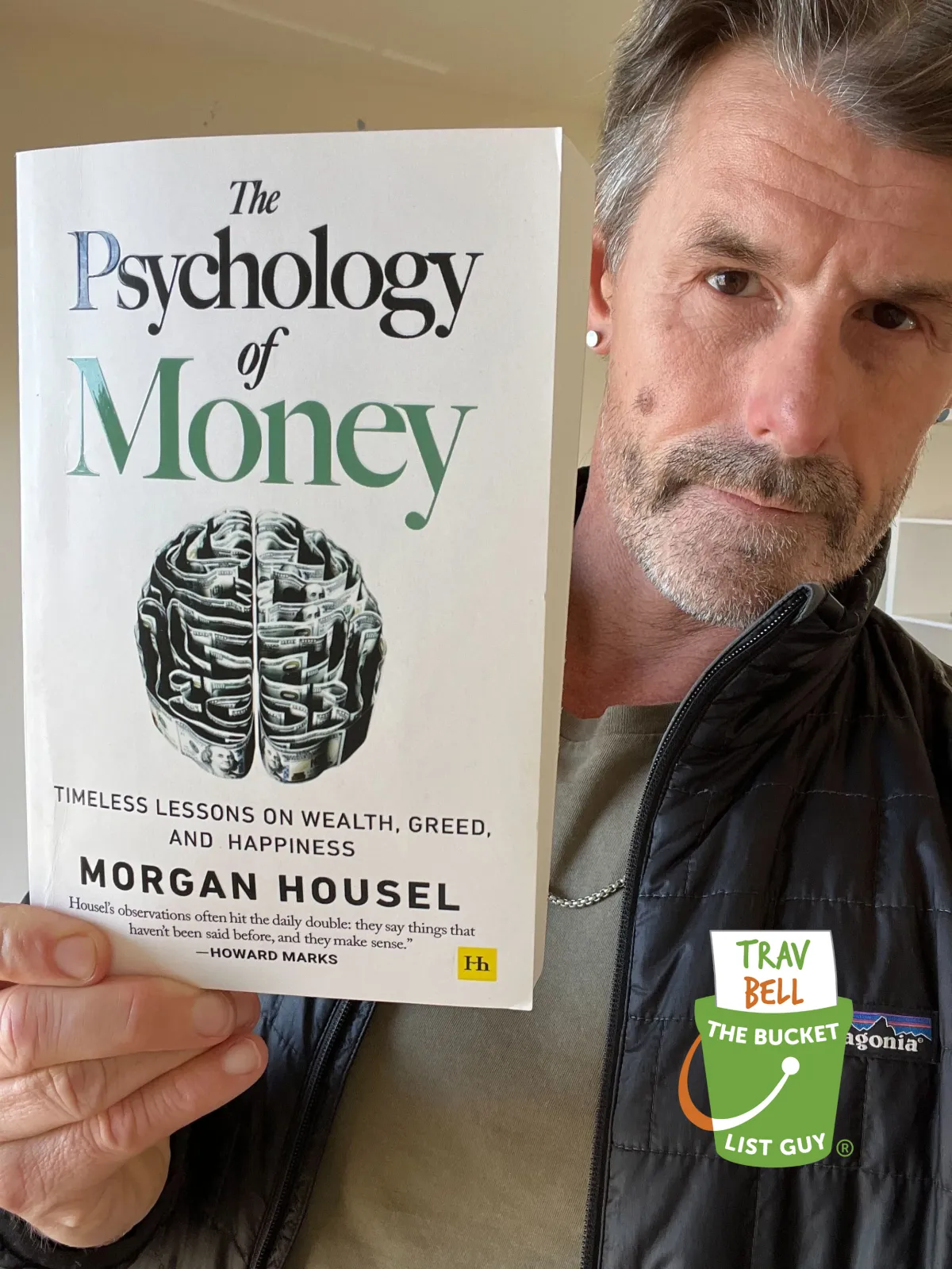LATEST BLOG POSTS

Book 28 of 52: The Psychology of Money – Mastering the Mindset of Wealth
Curious about how I used lockdown as a chance to jumpstart two major Bucket List items? Dive into my full journey here: Read the full blog
Book 28/52 of My #52Books52Weeks Bucket List Challenge
I first heard about Morgan Housel on the Tim Ferriss Podcast, and his perspective on money instantly grabbed my attention. He wasn’t talking about get-rich-quick schemes, complex investment strategies, or stock market hacks. Instead, he was talking about something even more powerful—how our mindset and emotions dictate our financial success.
That’s what The Psychology of Money is all about. It’s not a traditional finance book filled with numbers and charts. It’s a behavioral finance book that explores why we make the financial decisions we do and how we can rewire our thinking to build long-term wealth.
Key Lessons from The Psychology of Money
1. Wealth Has More to Do with Behavior Than Income
Earning a high income doesn’t automatically make you wealthy.
The way you spend, save, and invest matters more than how much you earn.
2. Compounding is the Most Powerful Financial Force
The earlier you start investing, the more time your money has to grow exponentially.
Housel shares how Warren Buffett made the majority of his wealth AFTER his 60s—because of compounding.
3. Avoid Lifestyle Inflation – You Don’t Have to Keep Up with the Joneses
Many people increase their spending as their income grows, keeping them stuck in the cycle of paycheck-to-paycheck living.
True wealth comes from financial independence, not flashy cars and big houses.
4. Financial Success is More About Patience Than Intelligence
The best investors aren’t necessarily the smartest—they’re the most patient.
The ability to stay the course and not panic when markets fluctuate is what leads to long-term wealth.
5. The Best Financial Plan is One That Lets You Sleep at Night
Risk tolerance is personal. If an investment strategy keeps you up at night, it’s probably not the right one for you.
The goal of money isn’t just to grow—it’s to give you peace of mind and freedom.
How The Psychology of Money Relates to Living a Bucket List Life
Money is a Tool, Not the Goal – Money should serve your life goals, not control them.
Master Your Emotions Around Money – Fear, greed, and impatience can wreck your financial future. Learning to control them = long-term success.
Financial Independence = Ultimate Freedom – The more control you have over your money, the more freedom you have to tick off your Bucket List.
Long-Term Thinking Wins – Just like big life goals take time, building wealth requires patience and consistency.
Happiness & Security Matter More Than Numbers – It’s not about how much money you have—it’s about what your money allows you to do.
This book was a game-changer for how I think about wealth and financial freedom. If you want to develop a healthier relationship with money and start making better financial decisions, I highly recommend The Psychology of Money.
Stay tuned for Book 29 of 52 as I continue this adventure of learning and growth!
#BucketListLife #UltimateChallenge #52Books52Weeks

